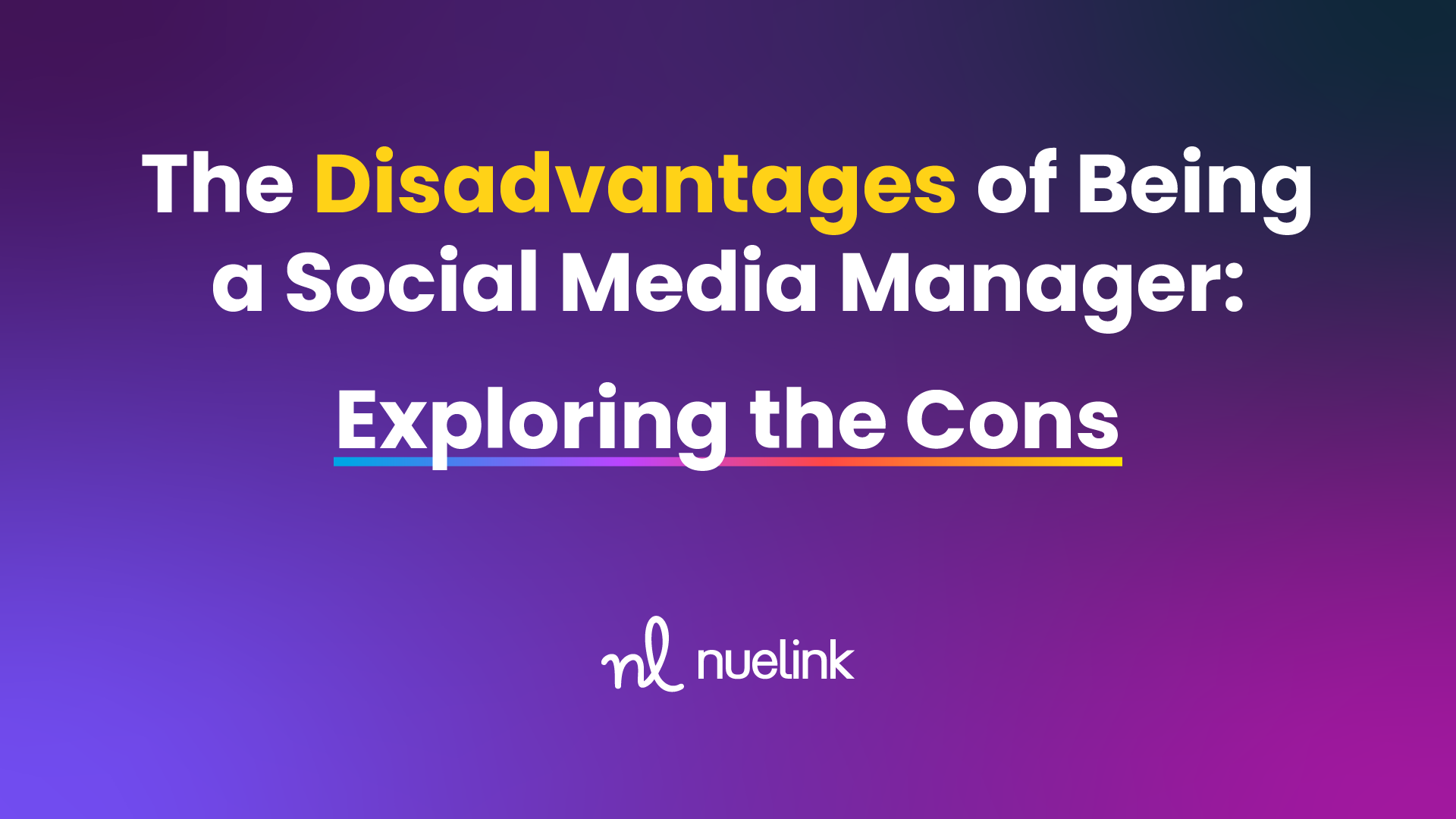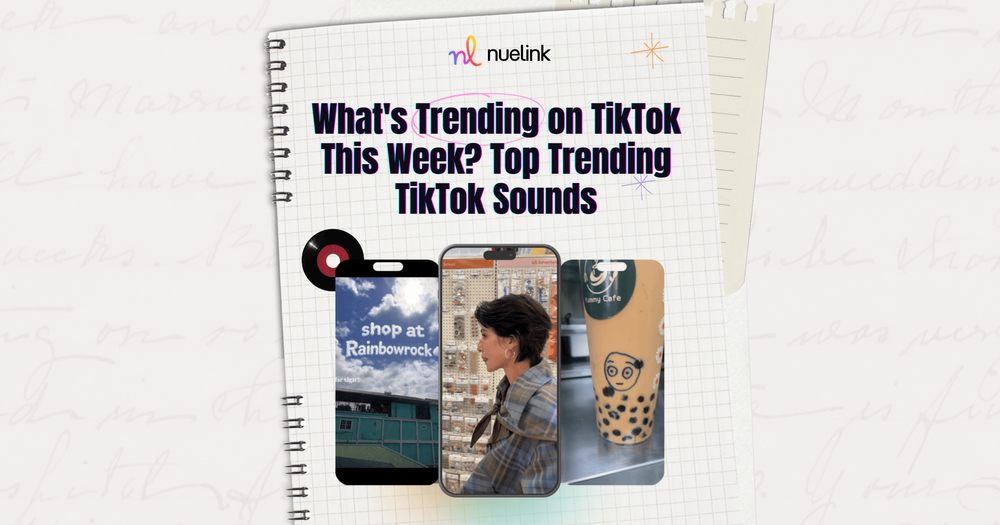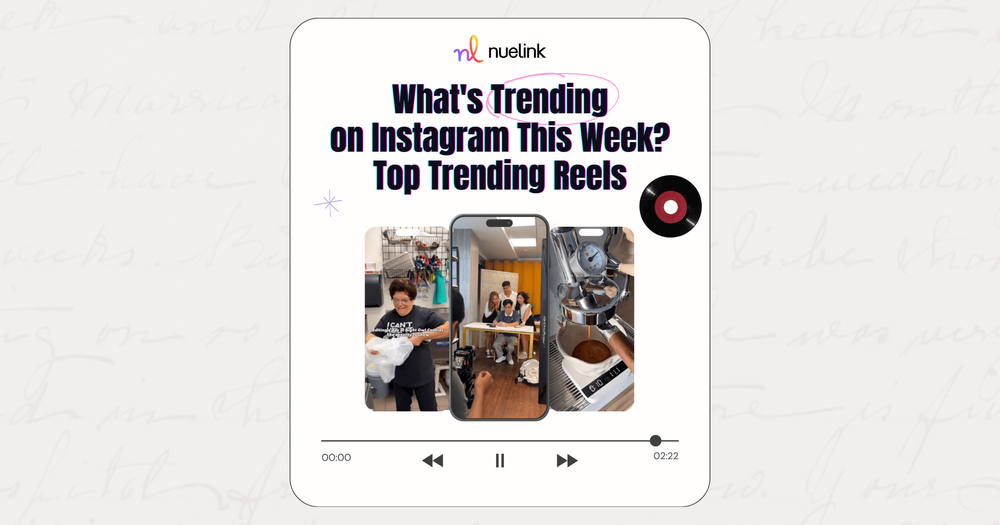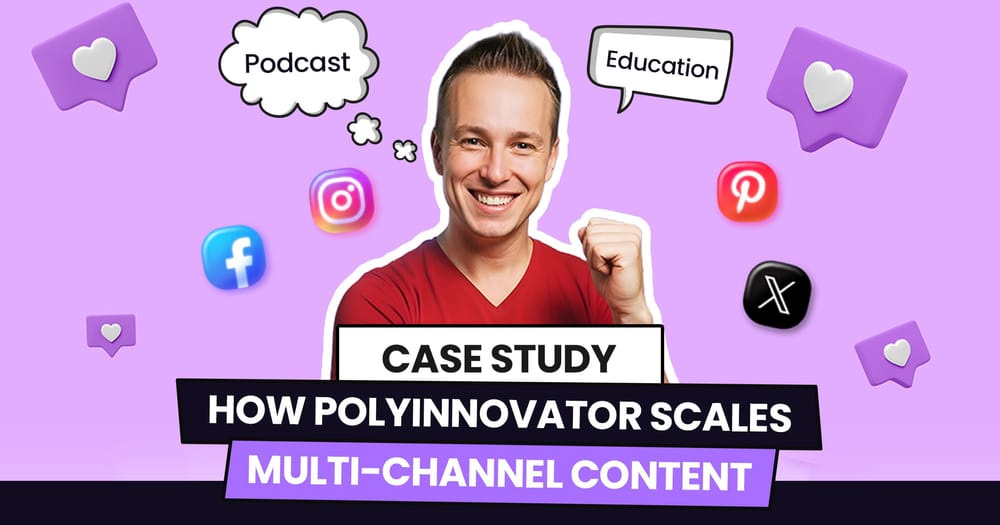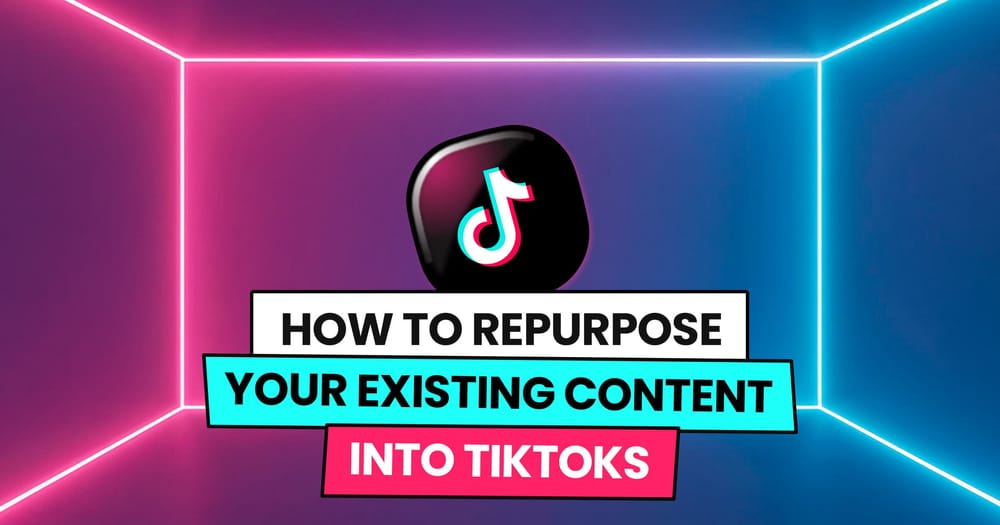It’s been a month or so since I published my first blog post about what it is a social media manager coupled with the best tried-and-true methods (from my experience) to start your career as a social media manager in 2023.
It looks like I did a great job convincing a lot of people to start the journey. Perfect!
But there is a problem!
Most people misunderstand the whole concept of being a social media manager.
They think being a social media manager is a relaxing, luxurious role.
They believe the company pays you to scroll on social media and have coffee breaks.
It is absolutely not the case!
It’s not all sunshine and rainbows.
Today, we'll dive into the disadvantages of being a social media manager.
My aim is not to dwell on the negatives, but to offer a practical and insightful perspective, allowing you to approach the role with realism and professionalism.
5 Disadvantages of Being a Social Media Manager
Digital burnout:
You already know what Burnout is (We all do)
But probably this is the first time you heard about Digital Burnout, isn’t it?
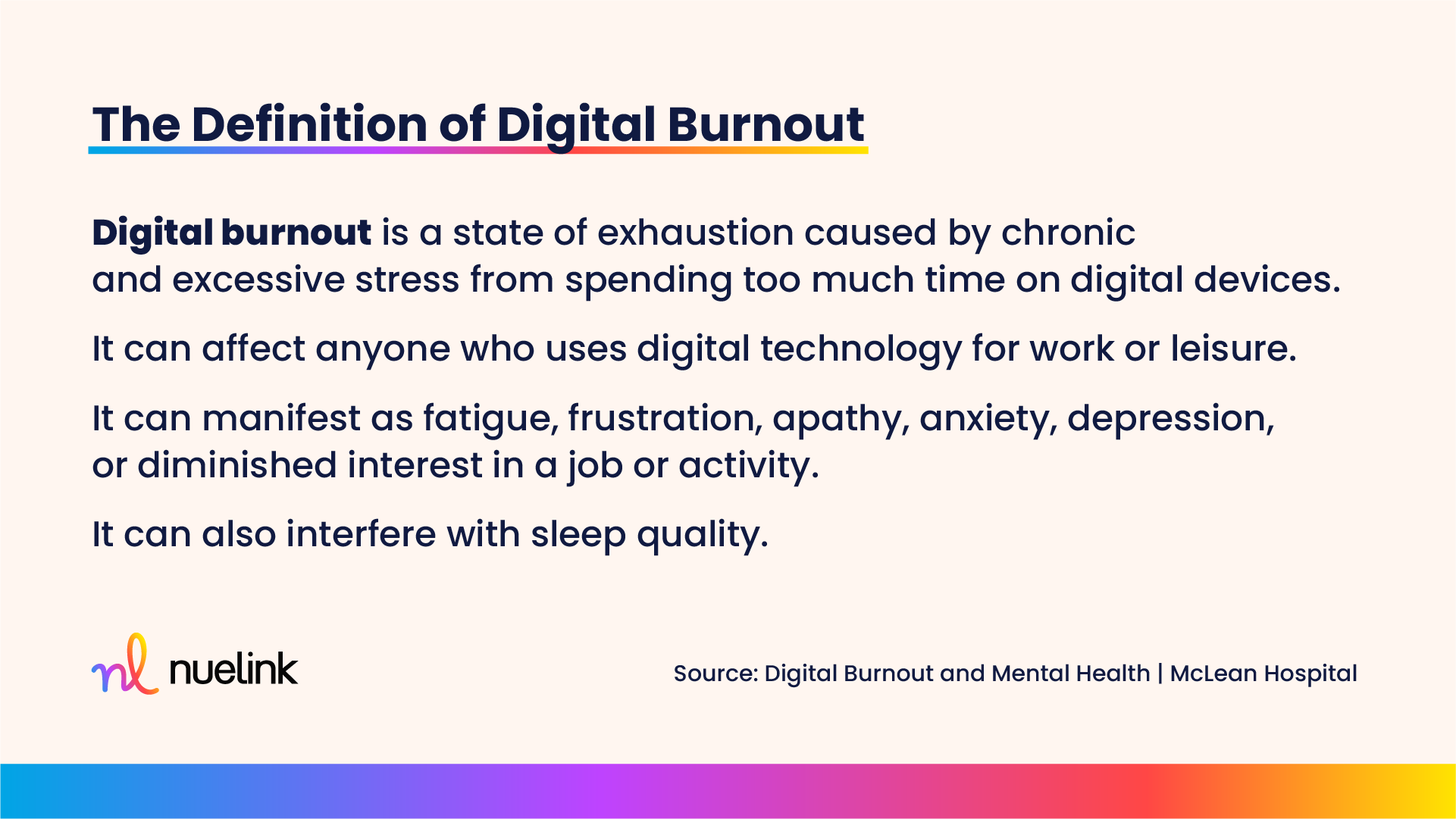
Yes, you are spending tremendous time on your favorite social media platforms but as they said: The good thing in a bad time is a bad thing.
No one can deny the positive impact that social media has brought into our lives; however, it is equally undeniable how profoundly social media has negatively influenced our mental health and overall well-being.
Digital Burnout is a real thing. Staying focused on a small screen for a long time is dangerous.
Balancing Multiple Roles
Do you remember when we talked about how social media managers’ responsibilities and tasks are very confusing and it varies across different companies?
Well, this is one of the disadvantages of this profession.
On any given day, you might be a strategist, content creator, analyst, and customer support representative, all rolled into one.
You may argue that this diversity of tasks and roles is interesting for you, and you don’t have a problem with that.
But, you need to know that almost every social media manager (me included) claimed the same thing at the beginning of his career.
Once you finished the 3-6 months working, you will notice that this is not something beneficial for you.
Creativity, time management, and mental energy will be negatively affected by this diversity if you don’t know how to manage it.
Creativity and metrics:
We are living in a hyperconnected world. The competition is super hard. The age of competing with few local businesses is gone. You are now in competition with businesses on a global scale. Customers have options (A lot of options). They are seeing hundreds of Ads and social media posts of other businesses trying to grab their attention.
The only hope businesses have to win this battle is creativity. This is why they are hiring social media managers.
The paradox lies in the fact that social media managers have to do more than just be creative. They must also be data-driven decision-makers, relying on actual facts, numbers, and data to create content that truly connects with customers.
Anyone with a little bit of experience knows how difficult to merge these two things together.
Social media managers often find themselves grappling with a dilemma: should they prioritize the creative idea or the data-driven approach?
On one hand, the creative strategy can potentially propel the brand ahead of its competitors.
On the other hand, the data-driven idea ensures resonance with regular customers. However, this type of decision-making process can be mentally draining, requiring significant mental energy.
To effectively avoid this, I recommend adopting the method I currently use:
- Gather and analyze all the Key Performance Indicators (KPIs) associated with your social media marketing strategies. This will provide you with valuable insights into what is effective and what is not. Take the time to thoroughly examine these indicators and summarize everything in a clear report.
- Eliminate all distractions and shift your focus away from the KPIs. Instead, grab a pen and paper, and set a timer for dedicated brainstorming sessions (No Internet use allowed). Push your mind to its limits, allowing yourself to explore innovative ideas that align with the findings from the report.
- Refer back to the report and carefully assess the feasibility and alignment of your brainstorming ideas with the insights and findings presented. Once you have evaluated the compatibility of these ideas with the report, proceed to develop a clear plan that outlines how you can effectively incorporate them into various aspects of your work, such as content creation, strategies, and other relevant areas.
To summarize the concept, think like an artist but perform as an accountant.
Negative feedback. Negative comments. Negative….
It doesn’t matter how famous and trustworthy the business you are handling its social media.
It doesn’t matter how much great the products/services the business is delivering.
It doesn’t matter how creative and educational the content you are creating.
You will face negative feedback and negative comments on social media.
In fact, this is why businesses are hiring social media managers; to help them deal with this negativity, manage it, and reduce it as much as possible.
So, a part of your job is to handle negativity.
In most cases, if you don’t know how to master your emotions, it will affect you. That being said, a conscious detachment is a highly recommended skill that you should master as a social media manager.
Now listen: First, negative feedback is not always a bad thing.
Maybe you are creating horrible content.
Maybe the business you are working with is delivering bad-quality products/services.
Who knows?
There's nothing wrong with that as long as you are constantly aiming for improvements and working towards them.
Second, most of the negative feedback you receive from customers and audiences has nothing to do with you – and sometimes has nothing to do with the business itself.
Customers are people. They have problems. They have emotions as well.
Maybe their beloved dog just died, or they are struggling to pay the electricity bill this month.
It is normal (but not good) human behavior to express emotions in the wrong places and toward the wrong people.
With this in mind, always deal with negative feedback with humanity, empathy, and, most importantly, professionalism.
Here is a quick tip that I have learned the hard way:
No matter how many bad comments you get from someone, whether in the comment section, DMs, or customer center.
Never ignore them. Never reply back with a negative response.
The worst feeling a customer or a follower of a brand can experience is being ignored.
The Non-Stop Connection
Social media platforms are always working. Social media platforms are always “On”.
But, you are not! You are human. You need to rest. Sometimes, you need to be “Off the clock”.
Notifications, comments, and DMs are always coming.
There are always new content ideas that you can work on.
There is always some celebrity news that can be beneficial for the brand.
Not to mention, there are always new updates on social media platforms.
All of this, coupled with other tasks such as scheduling, creating, and managing content on 5 or 6 platforms (depending on your work) places you in the middle of a distracted world.
Social media can be addictive, and without careful management, it might lead to numerous issues.
As highlighted by Cal Newport in his book "Deep Work," excessive use of social media can result in:
- Lack of ability to focus and concentrate
- Inability to turn your brain off
- Being vulnerable to resist distractions
- Bad quality sleep
The good news is, as we mentioned in the last blog when we discussed how you can stay up-to-date with the latest updates of social media platforms: scrolling non-stop on different platforms doesn't make you better at your job. In fact, I can argue that it makes you worse.
To avoid that, there are several things you can do to reduce the amount of time spent in front of the screen and decrease the influence of social media on your brain – even when you are 'off.'
First, you need a social media management and automation tool.
We already highlighted how you can use AI in your favor and make it break down the work hours, but we need to emphasize this more.
A social media tool like Buffer, Nuelink, or Hootsuite can be your best assistant; it can help with your work or even get the work done for you.
Second, adapt the idea of the 'shutdown method' in your work and life.
The shutdown method suggests that you should dedicate specific times when you will be online and specific times when you will not.
When you are working, work hard.
When you are off, you are off.
For example, if you finish your work at 5 PM, turn off everything related to work and social media.
No checking emails after dinner. No checking DMs while waiting in line at the store.
No imaginary conversations with colleagues about the next social media campaign. Nothing!
Allowing your brain to rest from scrolling and experience a little bit of boredom will have a greater impact on your well-being and professional life.
What Is the Hardest Part of Being a Social Media Manager?
Social media managers are often underappreciated by their colleagues because many people underestimate the importance and complexity of social media management roles.
As mentioned earlier, I felt compelled to write about this because I want people to be educated from all possible angles before pursuing a career.
You can blame a lot of marketing influencers for creating the misconception that the role of a social media manager involves doing nothing and getting paid.
It’s simply not true!
Social media management has its advantages, but it also comes with its fair share of disadvantages. You know, like any other job. 🙂

